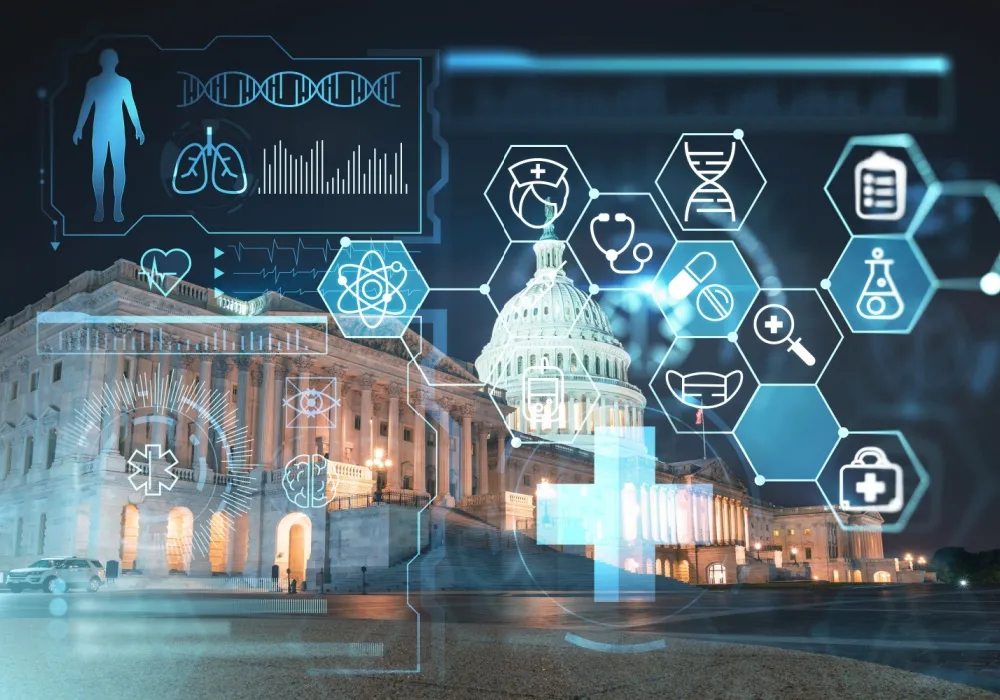
It’s a guessing game even for a seasoned policy analyst.
Back in September 2023, I looked into my crystal ball and told you that I could see Congress passing legislation by the end of 2023 that would require PBMs to disclose to the plan administrator detailed information about pricing practices, fees charged, rebate amounts and discounts retained by the PBM or passed through the employer, and whether the PBM steers participants and beneficiaries to pharmacies owned by the PBM. Ummmm, that did not happen.
Back in November 2023, you also heard me suggest that legislation to codify the Hospital Transparency and Transparency in Coverage (TiC) Rules, along with codifying the requirement to publicly disclose Prescription Drug Prices on a Machine-Readable File, and also increasing the disclosure of PBM payment practices and requiring owners of provider networks to grant plan sponsors access to a complete and accurate set of claims data for “auditing” purposes would not happen by the end of 2023. Ummmm, in a surprise move, the House of Representatives actually passed a bill that would effectuate the above stated changes on December 11 (the Lower Costs, More Transparency Act).
I’m 0 for 2, although the Senate has yet to act on the House-passed Lower Costs, More Transparency Act, so I suppose I am more like 0 for 1-½.
What’s my crystal ball telling me now: Lame Duck, Lame Duck, Lame Duck.
What’s “Lame Duck,” you ask?
Lame Duck is the session of Congress that occurs after the election in a particular election year. This year, the election will be held on November 5. And, this year is an especially important election year because it is a Presidential election year.
There is no chance that I am going to suggest who I think will win the Presidential election.
But, it does look like the House of Representatives will go from a Republican majority to a Democrat majority. And, it also looks like the Senate will go from a Democrat majority to a Republican majority.
That will actually have an impact on this year’s Lame Duck session. And, this will certainly have an impact on whether the Transparency, Data-Sharing, and PBM Reforms that I have been talking about for so long ultimately make their way into the law.
Why?
Typically, whether any “new policy” (i.e., changes that are not already in the law) will get enacted during Lame Duck will be impacted by the results of the elections. For example, if there is a shift in the majorities in either the House or Senate (or both), often the current political party in the majority will seek to enact “new policy” changes while they still can. However, the political party that may be coming into power will undertake efforts to block these “new policy” changes so they can make their own changes in the forthcoming years on their own terms. BUT, if there is bi-partisan support for measures that are already in law (and not considered “new policy”), then Congress and the sitting President will typically work together during the Lame Duck session.
So what does all that mean for this upcoming Lame Duck session?
There are current health care-related items that are already in the law and not considered “new policy.” One example is the COVID-era Telehealth flexibilities, and in particular, the expiring provision of the law which allows a High Deductible Health Plan (HDHP) to pay first-dollar for Telehealth services without disqualifying the HDHP-plan holder from contributing to their HSA for the year. There is bi-partisan support for extending this exception, soooooo, based on the above stated thesis, it is highly likely that – irrespective of the results of the upcoming elections – this current Congress and President Biden will work together to extend this provision, as well as enact other health care-related matters like it.
So why is that important?
If some health care-related items that are already in the law and not considered “new policy” are likely going to move during this upcoming Lame Duck, maybe, just maybe some “new policy” will ride along with them.
And why is that important?
Well, in my opinion, the provisions included in the House-passed Lower Costs, More Transparency Act like codifying the Hospital Transparency, TiC, and Prescription Drug File Rules and the Data-Sharing provisions, plus any of the PBM reforms (either those included in the House-passed bill or the Senate’s version of PBM reforms embodied in the Pharmacy Benefit Manager Reform Act) are all considered “new policy.” And, while “new policy” doesn’t always get passed in Lame Duck (as noted above), I am wagering that this “new policy” will ride along with the other health care-related items that are already in the law.
And viola…there you have it.
My crystal ball is telling me that we should expect codifying the Hospital Transparency, TiC, and Prescription Drug File Rules, plus some form of Data-Sharing (like requiring access to a complete and accurate set of claims data for “audit” purposes), plus some form of PBM reforms (probably the Senate’s version) to finally get across the finish line in Congress and get signed into law by President Biden by the end of 2024.
Let’s hope I avoid going a full 0 for 3.
The information provided does not, and is not intended to, constitute legal advice; instead, all information and content herein is provided for general informational purposes only and may not constitute the most up-to-date legal or other information. This summary is provided by a consultant to Benefitfocus.com, Inc., and any opinions expressed within do not necessarily reflect those of Benefitfocus.com, Inc. or its affiliates and are not intended to provide specific advice or recommendations for any plan or individual.



